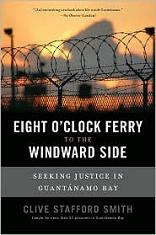I thought it no more than fair to give my own list of twenty essential science fiction books of the past twenty years, after my criticism yesterday. Below then is a list of the twenty books I think you should read to get a good overview of developments in science fiction in the past twenty years. Some ground rules:
- The books listed are representative of a particular subgenre or development, not necessarily the best books of the past two decades.
- they’re all books I’ve read myself
- No series, because that would be cheating
- As with the original lists, the John Clute and Peter Nicholls Encyclopedia of Science Fiction is added as a free, twentyfirst choice. I’ve looked hard for another essential non-fiction book, but there isn’t any of the same stature.
- Books are listed in order of publication, from 1988-2008
Brothers in Arms (1989) — Lois McMaster Bujold
The Miles Vorkogisan series is one of the best examples of mil-sf or military science fiction, a subgenre that came to prominence in the late eighties/early nineties. lots of it is dreck, rightwing power fantasies, but Bujold proves it is possible to write good mil-sf novels.
Rats and Gargoyles (1990) — Mary Gentle
A somewhat overlooked writer, but where she went with this novel a lot of writers would follow later, exploring a world where a different sort of science was established.
Earth (1990) — David Brin
To a large extent, we’re living in the world Brin described here. ‘Nuff said.
Use of Weapons (1990) — Iain M. Banks
The best of the Culture and the best of the New Space Opera that got going in the late eighties.
Heir to the Empire (1991) — Timothy Zahn
Surprisingly readable, this book opened the floodgates for a veritable deluge of Star Wars tieins, comics, merchandise and ultimately the prequel movies.
A Fire Upon the Deep (1992) — Vernor Vinge
Vinge had already established his idea of the Singularity in his earlier novels and stories, but with this novel it started to dominate science fiction, as a whole generation of writers became convinced that the Singularity was real and needed to be worked around.
Snow Crash (1992) — Neal Stephenson
The book that opened up cyberpunk to be more than just the adventures of lowlifes with hightech.
Ammonite (1993) — Nicola Griffith
Though at first it looked to have disappeared in the eighties, science fiction exploring feminist and gender themes was still being published. Ammonite was one of the first and best of a new wave of these sort of novels.
Gun, with Occasional Music (1994) — Jonathan Lethem
Science fiction has never been as hermetically sealed from the rest of literature as some of its fans like to think and writers have crossed over in both directions since before there was science fiction, but what was new in the 1990s was that there was a whole generation of literary writers fully aware of all science fiction traditions, who moved in and out of their genre when the mood struck them.
Axiomatic (1995) — Greg Egan
Greg Egan’s first short story collection. Egan was the last major writer whose strength was unambigiously the short story rather than the novel as well as the hardest hard science fiction writer of the nineties.
The Star Fraction (1995) — Ken MacLeod
During the eighties it had been the Americans who led the way in writing near future science fiction; cyberpunk being a largely american affair. With The Star Fraction the Brits took over the torch.
Catch the Lightning (1996) — Catherine Asaro
Science fiction romance, a very succesful subgenre but largely ignored by the critics… Not my genre either.
In the Garden of Eden (1997) — Kage Baker
The first in a popular series of time travel/secret history novels where the focus is not on either the time travel or the secret history, but on the somewhat mundane concerns of the hero of the series.
Cryptonomicom (1999) — Neal Stephenson
Another breach in the walls of science fiction’s insularity: this was labelled science fiction, sold as science fiction and generally accepted as science fiction, but was it really?
Perdido Street Station (2000) — China Miéville
The book that launched the New Weird, the closest science fiction has come to another cyberpunk or New Wave movement.
Nine Layers of Sky (2003) — Liz Williams
One example of a growing subgenre of books with a real world grounding intersected with a retrofuturistic, steampunk sf element.
Fitzpatrick’s War (2004) — Theodore Judson
By now, the mil-sf genre has crystalised so much razorsharp parodies of it are possible. In one neat package, all the cliches of the genre are skewered.
Accelerando (2005) — Charlie Stross
An example of the new blogdriven generation of authors like Scalzi and Doctorow, nerdy, computer and internet literate to a degree rarely found in previous generations. (Don’t mention Jerry “I need my friends at Cisco or IBM to reboot my modem” Pournelle)
The Vance Integral Edition (1999 – 2006) — Jack Vance
The ultimate in fandriven publishing projects, but it wasn’t alone; NESFA press for example also published a lot of new, definitive collections of old favourites.
Farthing (2006) — Jo Walton
One example of the maturing of the alternate history genre, accesible to both fans and those new to the genre with a writer confident enough not to spell things out, not to use shock tactics to show the essential horror of an early peace between England and Germany in World War II.
This is a personal list, selected (with the exception of the Vance Integral Edition) from my own personal library. There are obviously holes in it, subgenres I don’t read or examples of trends I don’t like (e.g. self-indulgent sequels by once great authors, carnage porn). If you got books I missed, you could always make a case for them in the comments.
